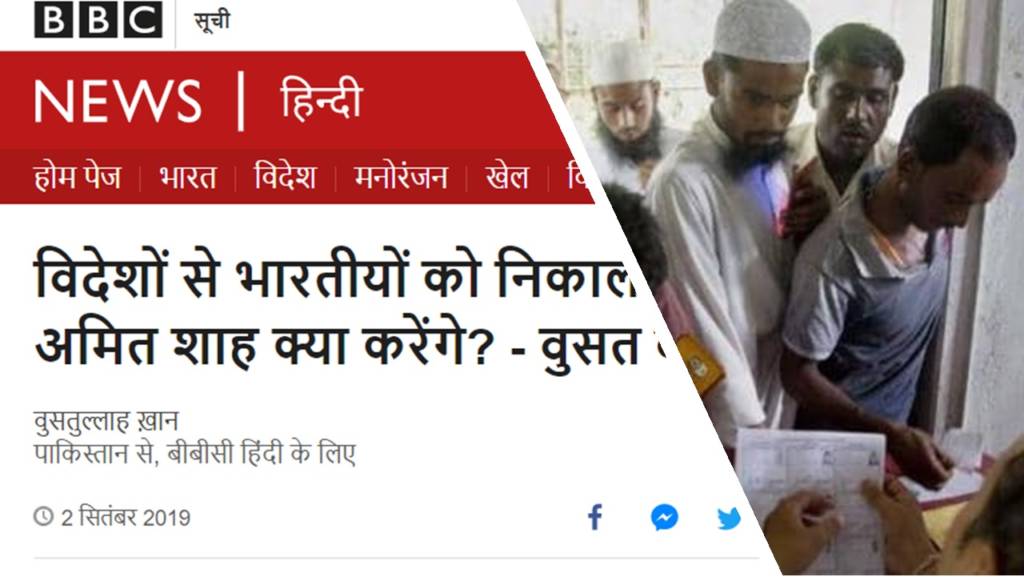BBC which has come under fire in the past for its shoddy journalism mostly targeting India with its anti-India bias, has carried yet another misleading report in a desperate attempt to target the NRC exercise carried out in Assam. In a Hindi article, BBC has drawn parallels between the NRC in Assam and the exodus of Asian Ugandans in 1972. By doing this, it has practically equated Indians settled abroad in accordance with the principles of international law to the illegal Bangladeshi immigrants residing in India. It must be noted that the 1972 crisis in Uganda that BBC is referring to, was an exodus of Asian Ugandans. At that time, Ugandan dictator Idi Amin had asked Asian Ugandans to leave the country within 90 days, labelling such Ugandans to be a remnant of the colonial legacy, as most of them were children and grandchildren of Indians brought to Uganda by British leaders when Uganda was a colony. In this article, filled with malice and prejudice against India, BBC first describes the 1972 crisis in Uganda and then tries to question Union Home Minister, Amit Shah about what he would do if countries like Canada, the US and the UK were to formulate a similar policy requiring people of Indian origin to reapply for citizenship.
This low-grade editorial which has featured in the BBC makes a gross error on the face of it by equating illegal immigrants living in India with such Indians who have settled abroad either on valid visas/ permits or as citizens of those countries. This analogy is totally absurd and seems to have been made only in order to push the obnoxious anti-India agenda that BBC has been guilty of propagating several times in the past. By conducting the NRC, India does not seek to expel any ordinary citizens of the country. The NRC is a legitimate, Supreme Court monitored exercise which seeks to identify illegal immigrants living in the state of Assam.
As far as the question of any other country pursuing a policy similar to the one pursued by Uganda in 1972 is concerned, the fact remains that any such policy would constitute an exodus of the targeted group of citizens in grave violation of internationally recognised human rights. Moreover, when Indians established abroad face any kind of trouble, the Indian Embassy looks out for them, a policy which has been bolstered since former External Affairs Minister, the late Sushma Swaraj’s tenure.
Expulsion of illegal immigrants is not something peculiar to India or NRC in Assam. Illegal immigrants get expelled from every country and the case of Indian illegal immigrants is no different. India has never done anything for an Indian illegal immigrant and rightly so. No country has the right to protest the expulsion of illegal immigrants of its nationality from another country. No country can force its citizens upon the territory of another country. And now when India has made up its mind to expel illegal immigrants residing in India, no one including the BBC should have any problem with that. BBC would do better to focus its energies upon issues of greater moment rather than cooking up weird analogies and imagining improbable situations, in a naive attempt to berate India.
